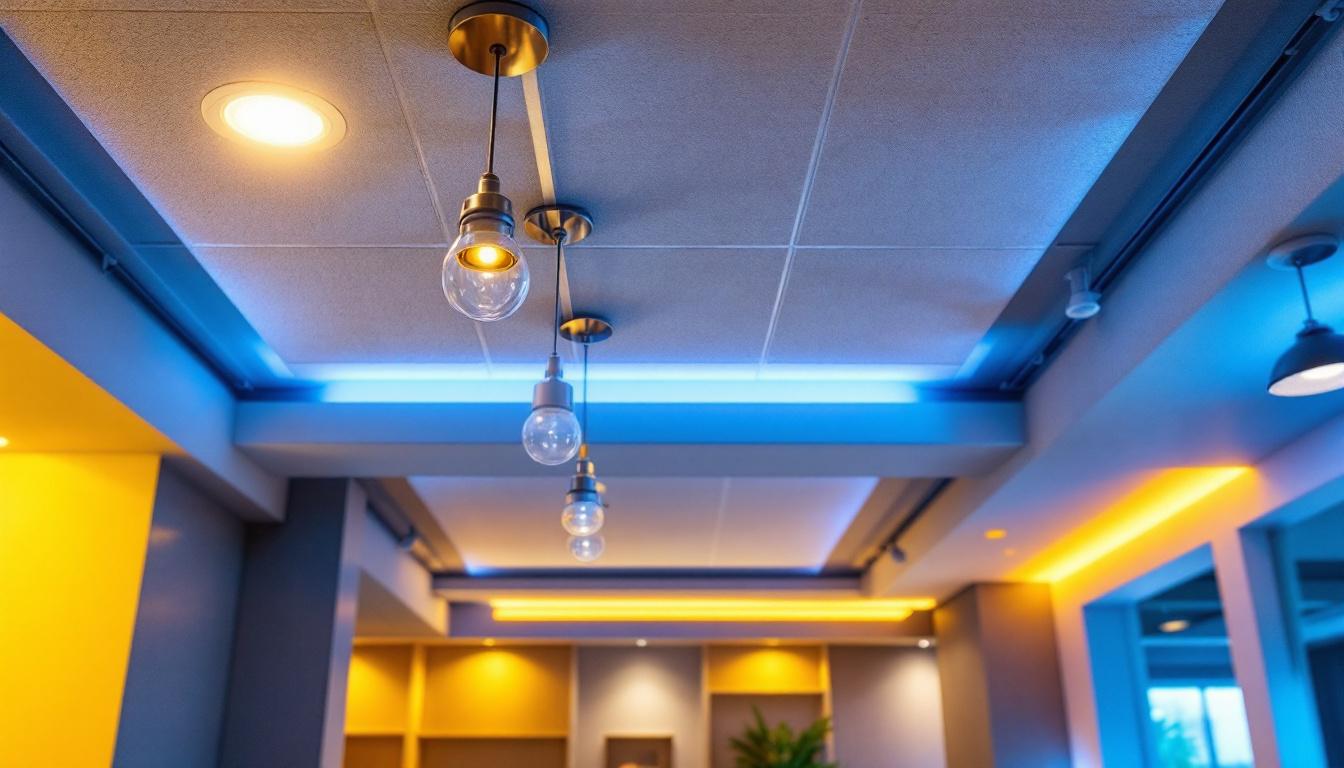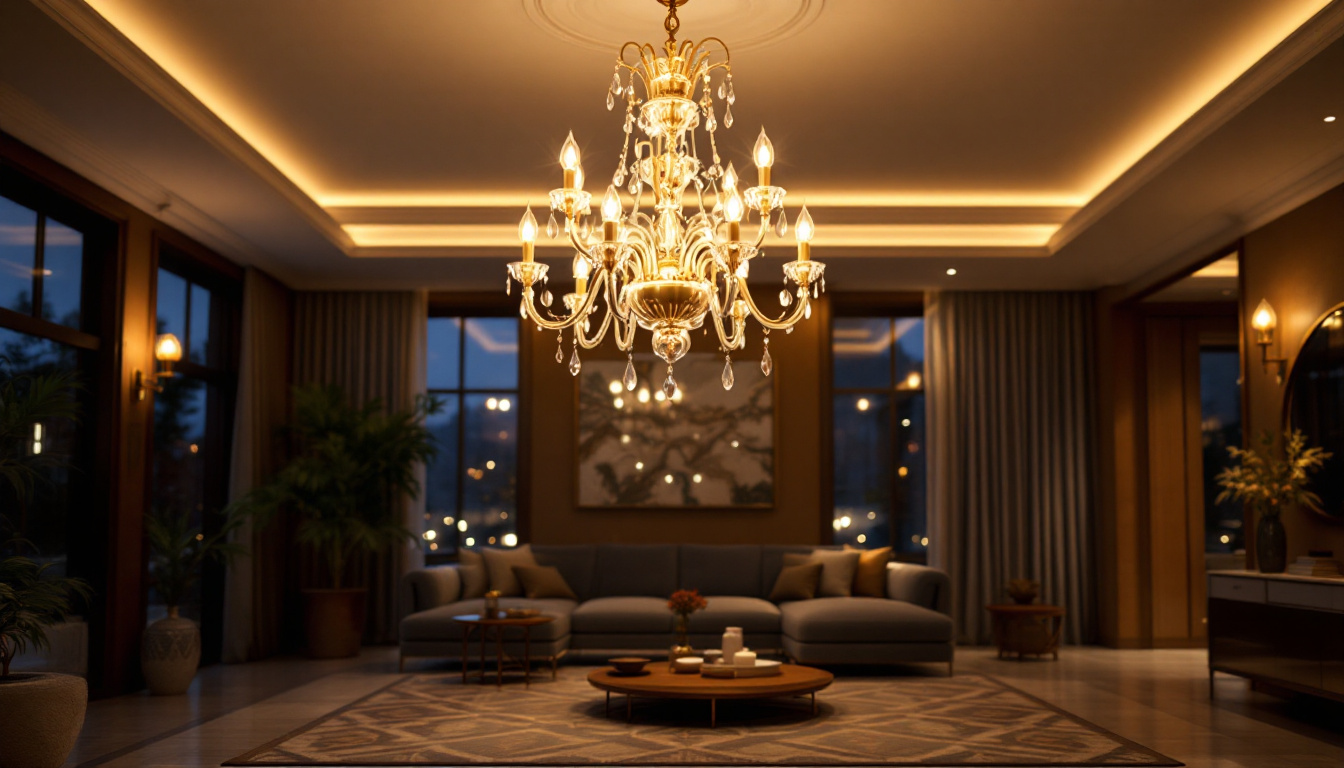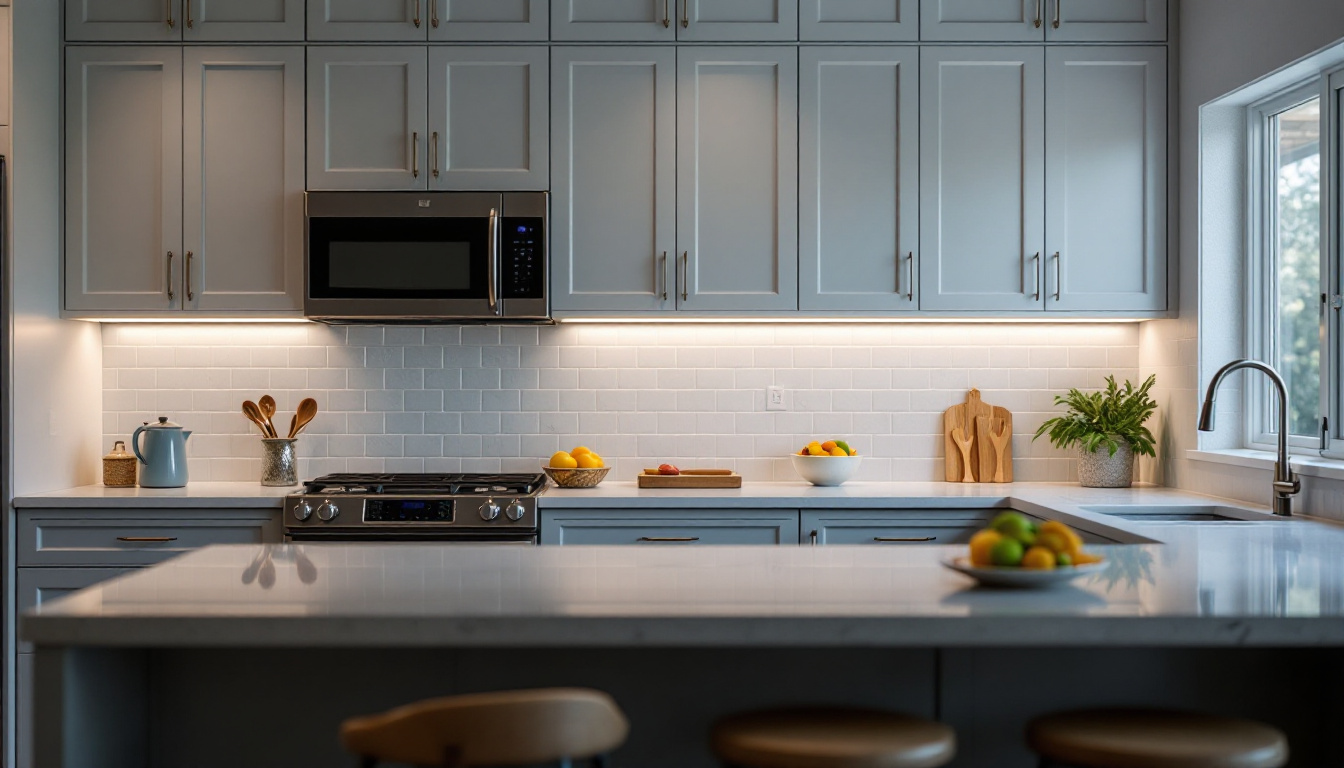
Drop ceilings, also known as suspended ceilings, are a popular choice in commercial and residential spaces due to their versatility and ease of installation. However, selecting the right lighting for a drop ceiling can be a complex task that requires careful consideration of various factors. This article aims to provide lighting contractors with comprehensive insights into the best practices, types of lighting, and installation techniques for drop ceilings.
A drop ceiling consists of a grid framework suspended from the main ceiling, allowing tiles or panels to be placed within the grid. This design not only conceals ductwork, plumbing, and electrical wiring but also provides an opportunity for creative lighting solutions. The space between the main ceiling and the drop ceiling can be utilized for various purposes, including lighting installation. This area can also serve as a conduit for additional insulation, which can help improve energy efficiency in a building.
Drop ceilings are particularly advantageous in commercial settings, such as offices, retail spaces, and schools, where flexibility in design and functionality is paramount. The ability to easily access the space above the tiles makes maintenance and upgrades more manageable, especially when dealing with lighting systems. Moreover, the versatility of drop ceilings allows for the integration of various technologies, such as sound systems and HVAC components, without compromising the aesthetic appeal of the space.
There are several benefits to using drop ceilings, particularly when it comes to lighting. First, they offer a clean and finished look, enhancing the overall aesthetics of a room. Second, they provide excellent sound absorption, making them ideal for spaces that require noise reduction. Finally, drop ceilings allow for easy installation of various lighting fixtures, which can be customized to meet specific needs. This adaptability means that businesses can easily switch out lighting options as trends change or as the needs of the space evolve.
In addition to their aesthetic and functional advantages, drop ceilings can also contribute to energy savings. By allowing for the installation of energy-efficient lighting options, such as LED fixtures, businesses can reduce their overall energy consumption. Furthermore, the insulation properties of drop ceilings can help regulate indoor temperatures, leading to lower heating and cooling costs. With the growing emphasis on sustainability, drop ceilings present an appealing option for those looking to enhance both the functionality and environmental performance of their spaces.
Recessed lighting is a popular choice for drop ceilings due to its sleek and unobtrusive design. These fixtures are installed above the ceiling tiles, creating a clean look that maximizes ceiling height. Recessed lights can be used to provide general illumination or accent lighting, depending on the design and layout of the space.
When selecting recessed lighting for a drop ceiling, it is essential to consider the size and spacing of the fixtures. The wattage and type of bulb used will also impact the overall brightness and energy efficiency of the lighting system. LED recessed lights are particularly favored for their longevity and low energy consumption.
Surface-mounted fixtures are another viable option for drop ceilings. These fixtures can be installed directly onto the ceiling grid, providing a more traditional lighting solution. They come in various styles, including flush mounts and pendant lights, allowing for greater design flexibility.
Surface-mounted fixtures are ideal for areas where recessed lighting may not be feasible, such as in spaces with limited ceiling height or where access to the ceiling grid is required. Additionally, they can be easily replaced or upgraded without significant disruption to the ceiling structure.
Track lighting offers versatility and adaptability, making it an excellent choice for drop ceilings. This system consists of a track that is mounted to the ceiling, with adjustable light fixtures that can be positioned anywhere along the track. This flexibility allows for targeted lighting in specific areas, such as artwork or workspaces.
Track lighting can also be integrated with other lighting types, such as recessed or surface-mounted fixtures, to create a layered lighting effect. When designing a track lighting system, it is crucial to consider the layout and purpose of the space to ensure optimal illumination.
The layout of the lighting system is a critical element in achieving effective illumination in a drop ceiling. A well-planned layout will ensure that light is evenly distributed throughout the space, minimizing dark spots and enhancing visibility. It is essential to consider the function of the room when determining the placement of fixtures.
In general, a grid pattern is often used for recessed lighting, with fixtures spaced evenly apart. However, the specific layout may vary depending on the size and shape of the room, as well as the type of lighting being used. For example, areas requiring more focused lighting, such as workstations, may benefit from a more concentrated arrangement of fixtures.
Color temperature plays a significant role in the overall ambiance of a space. Measured in Kelvin (K), color temperature can range from warm (around 2700K) to cool (above 5000K). For drop ceilings, it is essential to select a color temperature that aligns with the intended use of the space.
Warm white light is often preferred for residential settings, creating a cozy and inviting atmosphere. In contrast, cooler light temperatures are typically used in commercial environments, promoting alertness and productivity. Understanding the impact of color temperature on mood and functionality is crucial for lighting contractors when designing a drop ceiling lighting system.
In today’s environmentally conscious world, energy efficiency is a significant consideration in lighting design. LED fixtures are increasingly popular due to their low energy consumption and long lifespan. They produce less heat than traditional incandescent bulbs, reducing the need for additional cooling in the space.
When designing a lighting system for a drop ceiling, it is essential to consider the energy efficiency of the selected fixtures. Utilizing dimmers and smart lighting controls can further enhance energy savings while providing flexibility in lighting levels. Additionally, incorporating daylighting strategies, such as skylights or light tubes, can reduce reliance on artificial lighting during daylight hours.
Proper planning is crucial for the successful installation of lighting in a drop ceiling. This involves assessing the existing infrastructure, determining the type and quantity of fixtures needed, and creating a detailed installation plan. It is essential to account for any obstacles, such as ductwork or plumbing, that may impact the placement of fixtures.
Before beginning the installation, it is advisable to conduct a walkthrough of the space with the client to discuss their lighting preferences and requirements. This collaborative approach ensures that the final design aligns with the client’s vision while adhering to industry standards and regulations.
When installing lighting in a drop ceiling, electrical considerations are paramount. Ensuring that the electrical system can support the chosen fixtures is essential for safety and functionality. This includes verifying that circuits are adequately sized and that all wiring complies with local codes and regulations.
It is also essential to plan for proper grounding and circuit protection to prevent electrical hazards. Using junction boxes and conduit can help maintain safety and organization within the ceiling space. Additionally, labeling circuits and fixtures can facilitate future maintenance and troubleshooting.
Once the installation is complete, thorough testing and commissioning of the lighting system are necessary to ensure optimal performance. This process involves checking all fixtures for functionality, verifying that the lighting layout meets design specifications, and making any necessary adjustments.
During the commissioning phase, it is also essential to educate the client on the operation and maintenance of the lighting system. Providing them with information on bulb replacement, cleaning, and troubleshooting can enhance their experience and satisfaction with the installation.
The rise of smart technology has transformed the way lighting systems are designed and controlled. Smart lighting solutions allow for remote control, scheduling, and automation, providing users with enhanced flexibility and convenience. Integrating smart lighting into drop ceiling designs can significantly improve energy efficiency and user experience.
Contractors should consider incorporating smart lighting options, such as connected LED fixtures and smart switches, into their designs. These systems can be easily integrated into existing infrastructures, allowing for seamless upgrades and enhancements.
Architectural lighting is gaining popularity as a way to enhance the aesthetic appeal of drop ceilings. This design approach focuses on highlighting architectural features and creating visually striking effects through lighting. Techniques such as cove lighting, wall washing, and accent lighting can be employed to create depth and dimension in the space.
When implementing architectural lighting in a drop ceiling, it is essential to collaborate with architects and interior designers to ensure that the lighting complements the overall design vision. This collaborative approach can result in a cohesive and visually stunning environment.
Biophilic design, which emphasizes the connection between humans and nature, is becoming increasingly relevant in lighting design. Incorporating natural elements, such as daylighting and organic materials, can enhance the overall well-being of occupants in a space.
For drop ceilings, this may involve using fixtures that mimic natural light or incorporating elements that reflect nature, such as wood finishes or green plant integration. By creating a harmonious balance between artificial and natural lighting, contractors can contribute to healthier and more inviting environments.
Lighting for drop ceilings presents unique opportunities and challenges for lighting contractors. By understanding the various types of lighting available, considering essential design factors, and following best practices for installation, contractors can create effective and aesthetically pleasing lighting solutions.
Staying informed about current trends and advancements in lighting technology will also enhance the ability to meet client needs and expectations. Ultimately, a well-designed lighting system can significantly impact the functionality and ambiance of a space, making it a crucial aspect of drop ceiling installations.
Ready to elevate your drop ceiling installations with superior lighting solutions? Look no further than LumenWholesale, where we provide contractors with high-quality, specification-grade lighting products at unbeatable wholesale prices. Our extensive selection is designed to meet the highest industry standards, ensuring you get reliable, high-performance lighting for every project. Plus, with free shipping on bulk orders, you can enjoy premium lighting at the best value — without hidden fees or compromises. Don’t let middleman markups dim your project’s potential. Choose LumenWholesale for the perfect blend of quality, affordability, and convenience. Wholesale Lighting at the Best Value is just a click away.

Discover how True Lumens can help lighting contractors win more bids by providing accurate, reliable lighting measurements. Boost your success rate today!.

Discover the allure of the best chandeliers that elevate any lighting project from ordinary to extraordinary.

Discover the frequent pitfalls lighting contractors encounter when installing lights over cabinets.

Discover how a 4 lamp ballast can revolutionize your lighting projects by boosting efficiency and reducing energy costs.